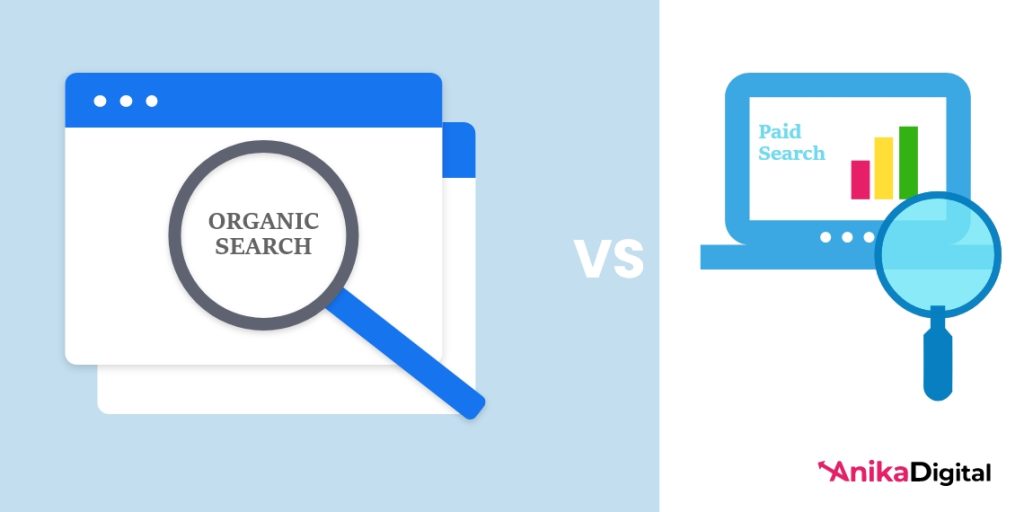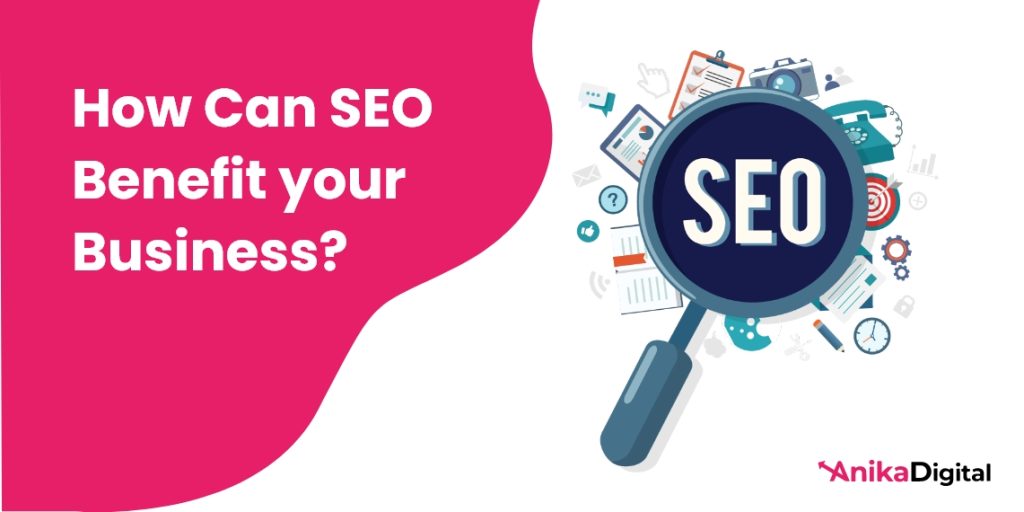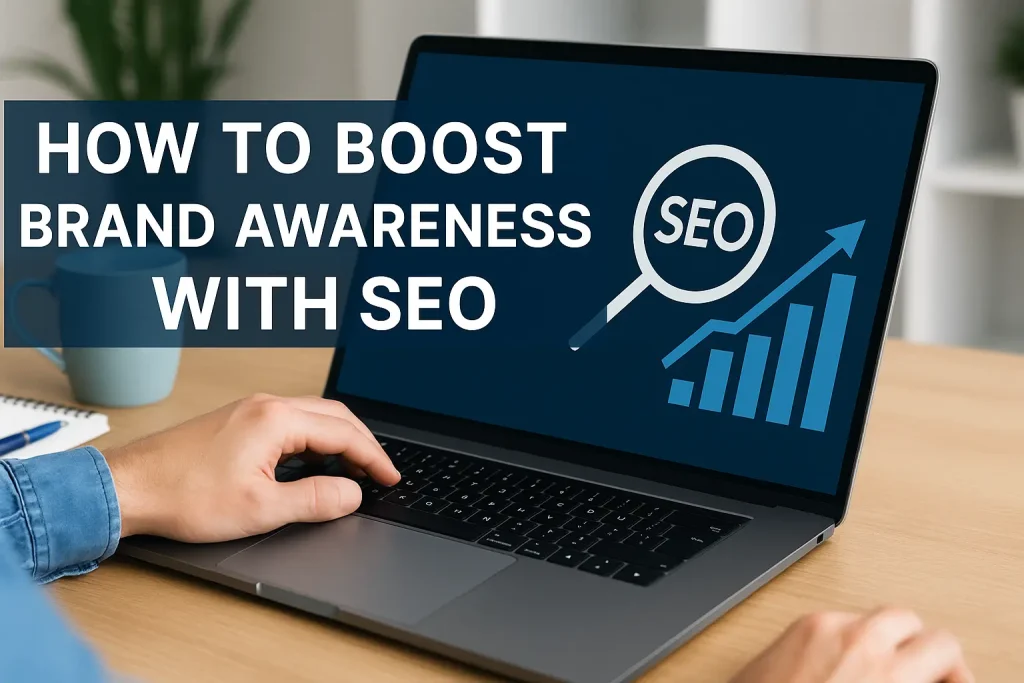Is SEO Worth It
What is Search Engine Optimisation?
The term search engine optimisation, abbreviated as SEO, is defined as a process in which we optimise the information we are providing in the article with the help of SEO keywords (main keyword and LSI keywords) so that when a query of a searcher has the relative keywords, they will help our information to rank 1st at google or other search engines.
So, SEO is paid advertisement?
The main distinction between SEO and paid advertising is that you don’t have to pay for SEO. You keep improving your work so that your website has the most clicks and shows up on top on Google, Bing and others, whereas paid advertisement refers to pay-per-click.
How Does SEO Work?

The three primary factors of search engines are as follows:
- Crawling: Searching the Internet for content and reviewing the information for each URL they go through.
- Indexing: It is the process by which the information collected during crawling is saved, and the page is added to a reference list. After the page is added to the index, it will be displayed in accordance with a relative query.
- Ranking: Ranking is the act of giving a bit of information as a summary of the whole article in a line or two that will best answer a searcher’s query, and then the results are ranked from most relevant to least.
Now, here is a guide on how to use the three basics of SEO in your writing:
- Make your website crawlable so that search engines can read it.
- Enticing information that responds to the searcher’s question
- Searchers and engines are keywords; writers should optimise the keywords.
- An excellent user experience involves a speedy load time and a pleasant user interface.
- Relateable, well-cited, and elaboration-worthy information.
- An attractive title, URL and description will get you to a higher CTR rating.
Why is Organic Traffic So Important?
Before discussing the importance of organic traffic, one should know about
“What is organic traffic?”
Organic traffic: The number of clicks or visitors reaching the website by SEO and not paid advertisement is known as organic traffic.
Importance: Organic traffic is essential since it is targeted. Users who arrive at your website via SEO have a specific query in mind, and if your website can provide them with a solution or answer to their problem, they seem to be more attracted.
What is the Distinction Between Organic and Paid Search Traffic?

The primary distinction between organic and sponsored search traffic is that organic traffic is free purely based on searches concerning SEO, whereas paid search traffic requires payment (Pay Per Click).
How Can SEO Benefit Your Business?

SEO benefits your business in so many ways that the central question
“Is SEO worth my time, money and all?” will be answered effortlessly.
Users are more inclined to support a site that appears on the first page of search engine results pages (SERP) than a site that does not appear on the first page. SEO aids in the development of your company’s brand awareness.
If you own a small business, you should use SEO to build a solid online presence, beat your competitors to get new clients, and take your company to the next level.
Some of the advantages are as follows:
- User-friendly websites
- Attract more clients
- Increased conversion rates
- Increased brand recognition
- Eliminate competition
- Organic traffic
- Cheap and cost-effective
- Long-term strategy
- Quantifiable
- Bring new opportunities
-
Organic search results
Organic search results are due to factors such as:
- Relatability to the searched query
- Authentic search engine optimisation (SEO) efforts and not by search engine marketing (SEM) or deception.
Most websites and businesses use SEO for business to execute organic search marketing correctly. Through on-page SEO and off-page SEO adjustments, SEO company services can help your site rank higher in search results. The SEO services will help your website appear at up top of search engines when presented with a relevant query.
-
Google Maps:
Google Maps can assist you in finding anything. Google Maps can help you discover everything from neighbouring eateries to car repair shops to the best drinks in town. It uses up-to-date and reviewed data to present answers to your searches or AI-powered ideas.
Google Maps Benefits:
- It aids in the discovery of your business.
- Allows customers to get in touch with your company quickly.
- Encourages visitors to come to your website or physical location.
- Different pictures and logos are used for promotion.
- Provides customer credibility by way of a review
Is SEO Worth It to Your Business?

“Is SEO worth paying for? OR “Is SEO worth our time?”
This is a question we get a lot from small and local businesses.
Most people working online know about SEO and its advantages.
However, with all of the new fads and digital marketing possibilities, they’re beginning to wonder if SEO is still worthwhile.
SEO can be pretty beneficial to your company.
The more eyes on your website, no matter what type of business you have, the better your chances of a conversion and a sale are.
The main goal of using SEO in business is to gain organic traffic to your website. The more visitors you can generate through this digital marketing channel, the more money you might potentially earn.
Understanding Why SEO is Worth It for Small and Medium-Sized Businesses.
Small and medium-sized businesses (SMB) play a vital role in the economy, often facing distinct challenges compared to larger enterprises. These businesses typically operate with limited resources, tight budgets, and fierce competition. In such a competitive digital landscape, having effective online marketing strategies is essential for SMBS to thrive.
But what exactly is SEO, and why is it significant for SMBS? SEO, or Search Engine Optimisation, is the practice of optimising a website to improve its visibility and organic search rankings. By implementing SEO techniques, SMBS can increase their chances of being found by potential customers who are actively searching for the products or services they offer.
The significance of SEO lies in its ability to drive organic traffic, which refers to visitors who discover a website through search engine results rather than paid advertisements. Unlike paid advertising, SEO offers a sustainable approach to online visibility. When a website ranks higher in search engine results, it gains more exposure, credibility, and trust from users.
For SMBS, this means that a well-executed SEO strategy can level the playing field and provide an opportunity to compete with larger businesses. By appearing prominently in search results, SMBS can enhance their brand visibility, capture the attention of their target audience, and attract potential customers.
In addition to driving organic traffic, SEO also focuses on optimising the user experience. A well-optimised website with relevant and valuable content, intuitive navigation, and fast loading speeds can improve user satisfaction and increase the likelihood of conversions.
The Benefits of SEO for Small and Medium-Sized Businesses
1. Increased Online Visibility and Brand Awareness
One of the primary benefits that SEO offers to small and medium-sized businesses (SMBS) is increased online visibility. By implementing SEO strategies, SMBS can improve their search engine rankings and appear higher in relevant search results. When potential customers search for products or services related to their business, being visible on the first page of search results significantly increases the chances of attracting organic traffic.
Appearing higher in search engine rankings brings numerous advantages for SMBS, including enhanced brand recognition and awareness. When a website consistently ranks well in search results, it gains credibility and trust from users. Users often associate higher rankings with more reputable and trustworthy businesses. As a result, SMBS that invest in SEO can establish a strong online presence and increase their brand visibility.
Improved brand awareness is crucial for SMBS, especially when competing with larger companies. SEO allows SMBs to get their brand in front of potential customers who may not have been aware of their existence otherwise. By targeting relevant keywords and optimizing their website content, SMBs can reach their target audience at the right moment—when they are actively searching for the products or services they offer.
Furthermore, when SMBS consistently appear in search results, users may become familiar with their brand over time. This familiarity contributes to brand recognition and can result in increased trust and loyalty from customers. As SMBS continue to invest in SEO and maintain a strong online presence, their brand awareness can grow, leading to greater market share and potential business growth.
2. Cost-Effectiveness of SEO
When it comes to marketing strategies, small and medium-sized businesses (SMBS) often have limited budgets and resources. This is where the cost-effectiveness of SEO becomes a significant advantage. In comparison to other marketing strategies, such as paid advertising, SEO offers a cost-efficient approach with long-term benefits. In reality, the average click-through rate (CTR) for the top slot on Google is 19.30%, whereas it drops to 10% for the second place. This implies that for firms looking to capitalise on traffic in their sector, good search optimisation is critical. Businesses risk missing out on potential growth if competitors force them down the page.
Paid advertising, while providing immediate visibility, requires a continuous investment to maintain that visibility. On the other hand, SEO involves optimising your website and content to improve organic search rankings. While it may require upfront costs for SEO implementation and ongoing optimisation efforts, the long-term benefits and return on investment (ROI) make it a cost-effective strategy for SMBS.
3. Targeted Traffic and Qualified Leads
With SEO, SMBS have the opportunity to attract targeted traffic and qualified leads. Instead of reaching a broad audience that may not be interested in their products or services, SEO enables SMBS to specifically target users who are actively searching for what they offer. By identifying and optimising for relevant keywords related to their industry, SMBS can position themselves in front of their ideal customers at the right moment.
By appearing in search results for relevant queries, SMBS have a higher chance of attracting users who are already interested in their products or services. These users are more likely to convert into customers or take desired actions on the website, such as making a purchase, submitting a form, or contacting the business. As a result, SEO generates targeted traffic and brings in qualified leads, increasing the potential for conversions and business growth.
Optimising website content with relevant keywords and providing valuable information aligns the website with user intent. This helps SMBS build trust and credibility with their audience, as they are providing the solutions or information that users are actively seeking. By understanding the pain points and needs of their target audience, SMBS can craft content that resonates with users and positions their brand as a trusted authority in the industry.
4. Establishing Credibility and Authority
Establishing credibility and authority is crucial for small and medium-sized businesses (SMBS) to gain the trust of potential customers. SEO plays a significant role in building this credibility and positioning SMBS as experts in their industry.
Optimised content, such as well-researched blog posts, informative articles, and comprehensive guides, not only helps SMBS rank higher in search engine results but also showcases their expertise. When SMBS consistently provide valuable and relevant information through their optimised content, users perceive them as knowledgeable and trustworthy sources.
Higher search rankings themselves contribute to perceived expertise. Users often associate top-ranking websites with industry leaders or authorities. By investing in SEO and achieving higher rankings, SMB can position themselves alongside established competitors, enhancing their credibility in the eyes of potential customers.
Moreover, SEO helps build trust and credibility among potential customers. When SMB appear in search results consistently, users perceive them as more reliable and trustworthy compared to businesses with lower search visibility. The ongoing efforts to optimise the website, improve user experience, and provide valuable content all contribute to building trust and establishing a positive reputation.
6. Competitive Edge and Business Growth
In competitive industries, SMB often face challenges in standing out from larger and more established competitors. SEO provides SMB with a competitive edge by levelling the playing field and enabling them to compete effectively.
By implementing effective SEO strategies, SMB can increase their online visibility, surpass competitors, and attract potential customers. When SMB optimise their website and target relevant keywords, they can gain exposure to a wider audience, even in highly competitive markets. This expanded reach allows SMB to showcase their unique value propositions, products, or services and capture the attention of potential customers who may have otherwise overlooked them.
Sharretts Plating, an industrial plating company, after making Webfx design their company, was able to attract more qualified leads and expand their business with a 270% boost in organic traffic and a 60% rise in quote inquiries.
Many businesses have experienced substantial growth through successful SEO strategies. For example, a small local salon that effectively implements SEO techniques can attract customers searching for “best salons in [city]” and compete with larger salons in the area. By appearing in search results and providing a positive user experience, the salon can gain a competitive advantage and witness significant business growth.
Addressing Common Concerns and Misconceptions about SEO.
Despite the numerous benefits of SEO, small and medium-sized businesses (SMB) may have concerns or misconceptions that hinder their decision to invest in SEO. Let’s address some of these common doubts and provide evidence to debunk these misconceptions:
- Cost: SMB may worry about the cost of implementing SEO strategies. While SEO does require an investment, it’s important to consider the long-term benefits and return on investment (ROI). Compared to paid advertising, which requires ongoing expenses, SEO offers a cost-effective approach with sustainable results. Additionally, SMB can start with basic SEO practices and gradually expand their efforts as their budget allows.
- Time: SMB may be concerned about the time required to see results from SEO efforts. It’s true that SEO is a long-term strategy that requires consistent effort and patience. While immediate results may not be evident, the gradual improvement in search rankings and organic traffic can lead to long-lasting benefits. SMB should view SEO as an investment in their online presence that builds momentum over time.
- Technical Complexity: SMBs without technical expertise may feel overwhelmed by the perceived technical complexities of SEO. However, SEO has evolved to be accessible to businesses of all sizes. There are numerous user-friendly tools, resources, and guides available that simplify the process. Additionally, outsourcing SEO to experienced professionals or agencies can alleviate the technical burden and ensure effective implementation.
- Effectiveness: Some SMB may question the effectiveness of SEO and its impact on their business. It’s important to note that SEO has been proven to deliver significant results for businesses across various industries. Numerous case studies and success stories demonstrate the positive impact of SEO on increased visibility, traffic, and conversions. SMB should consider their specific goals, target audience, and market conditions when evaluating the potential effectiveness of SEO for their business.
Counterarguments and evidence to debunk these misconceptions:
- Cost-effectiveness: SEO offers a high ROI compared to traditional marketing strategies. Research shows that organic search traffic can generate more leads and conversions than paid advertising, resulting in long-term cost savings.
- Timeframe: While SEO is a long-term strategy, SMB can start seeing improvements in search rankings and organic traffic within a few months. Consistent effort, ongoing optimisation, and adapting to algorithm updates contribute to sustainable growth over time.
- Simplified SEO: SMB can leverage user-friendly SEO tools and platforms that provide step-by-step guidance, keyword research assistance, and performance tracking. Additionally, many resources, blogs, and communities offer support and educational materials to help SMB navigate the SEO landscape.
- Effectiveness: Numerous case studies showcase the positive impact of SEO on SMB. These success stories highlight increased website traffic, improved rankings, enhanced brand visibility, and substantial business growth.
By addressing these concerns and providing evidence to debunk misconceptions, SMBs can gain a clearer understanding of the true potential and benefits of SEO for their business. In the next section, we will provide practical tips for implementing SEO strategies tailored to the needs of small and medium size businesses.
Case Studies or Success Stories of SEO
Real-world examples serve as powerful evidence of the benefits small and medium-sized businesses (SMB) can achieve by implementing effective SEO strategies. Let’s explore a few success stories that highlight the achievements, improvements in visibility, and business growth resulting from SEO efforts:
Case Study: Edelweiss Bakery
Edelweiss Bakery, a small local bakery, recognised the importance of SEO to attract more customers and compete with larger bakeries in the area. By optimising their website, creating informative and engaging blog posts about baking tips, recipes, and local food culture, they started gaining visibility in search engine results.
The results were remarkable. Within six months of implementing their SEO strategy, Edelweiss Bakery saw a significant increase in organic traffic by 50%, with their website appearing in the top search results for local keywords such as “fresh bread near me” and “best pastries in San Diego” This increased visibility led to a 35% increase in online orders and a 20% rise in foot traffic to their physical store. By establishing themselves as a reputable bakery through SEO, Edelweiss Bakery experienced substantial business growth and expanded its customer base.
Case Study: E-commerce Store
An e-commerce store specializing in handmade jewelry embarked on an SEO journey to increase their online sales and expand their customer base. They optimized their product descriptions, implemented technical SEO improvements, and invested in content marketing and link building.
The results were impressive. The e-commerce store experienced a 120% increase in organic traffic within a year, with their products appearing in top search results for relevant keywords. This boost in visibility led to a 60% growth in online sales and a significant increase in repeat customers.
By leveraging the power of SEO, the e-commerce store not only enhanced its online visibility but also built trust and credibility among its target audience. The increased sales and customer loyalty were a testament to the effectiveness of their SEO efforts.
These case studies demonstrate how SMB across different industries have achieved significant growth and success through effective SEO strategies. By optimising their websites, creating valuable content, and establishing a strong online presence, these businesses were able to attract more customers, outperform competitors, and experience substantial business growth.
Conclusion
SEO is not just an option but a strategic investment for SMB. By incorporating SEO into their overall marketing strategy, SMB can improve their online visibility, attract targeted traffic, establish credibility, and drive business growth. SEO offers a cost-effective and sustainable approach to enhance brand awareness and compete in the digital landscape. So, even in 2023, SEO is still worth it for connecting with SMB’s target audiences.
To achieve success with SEO, SMB should embrace continuous learning, adapt to algorithm updates, and leverage the available tools and resources. By making SEO a priority, SMB can position themselves for long-term success in the digital world.
Now it’s time for you to take action. Consider the insights shared in this blog post and start implementing SEO strategies for your business. Invest the time and effort required to optimise your website, create valuable content, and build a strong online presence. By doing so, you can reap the benefits of improved visibility, increased organic traffic, and sustainable business growth.
Remember, SEO is not a one-time task but an ongoing process. Stay informed about the latest industry trends, track your performance regularly, and make adjustments as needed. Embrace the power of SEO and propel your small or medium-sized business to new heights in the online realm.




